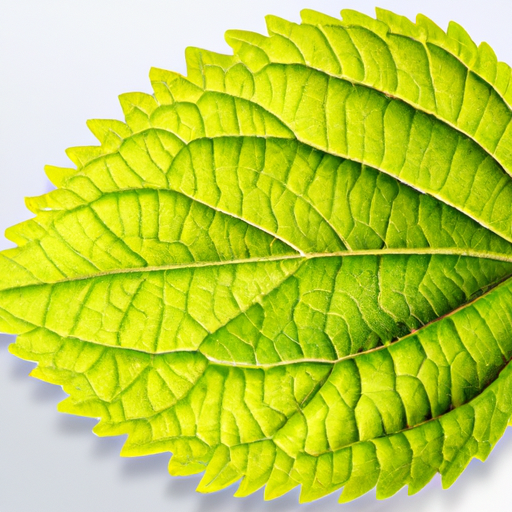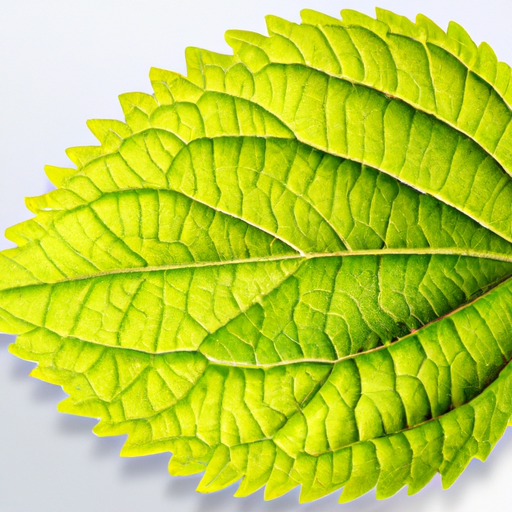Are you looking for a natural way to help manage ADHD symptoms? Well, look no further! In this article, we’ll be discussing the best herb for ADHD and how it can potentially benefit you or your loved one. Whether you’re curious about alternative treatments or simply seeking additional options, we’ve got you covered.
Now, let’s dive into the topic at hand. When it comes to ADHD, many people are turning to herbal remedies as a complementary approach to traditional medications and therapies. One herb that has gained significant attention is Bacopa Monnieri, also known as Brahmi. This herb has a long history in Ayurvedic medicine and is believed to enhance cognitive function, reduce anxiety, and improve memory.
But that’s not all – there’s much more to learn about Bacopa Monnieri and how it can help individuals with ADHD. So, if you’re interested in exploring the potential benefits of this amazing herb, keep reading our article. We’ll discuss its mechanisms of action, dosage recommendations, and potential side effects. By the end, you’ll have a comprehensive understanding of whether Bacopa Monnieri could be the best herb for you or your loved one with ADHD.
Understanding ADHD
Attention deficit hyperactivity disorder (ADHD) is a neurodevelopmental disorder that affects both children and adults. It is characterized by symptoms such as inattention, hyperactivity, and impulsivity. ADHD can significantly impact various areas of life, including school performance, work productivity, and relationships. Understanding the nature of ADHD is crucial in finding effective treatment options.
What is ADHD?
ADHD is a condition that affects the brain and its ability to control attention, behavior, and impulses. It is classified into three subtypes: predominantly inattentive, predominantly hyperactive-impulsive, and combined. In the predominantly inattentive subtype, the individual has difficulty focusing and tends to be forgetful and disorganized. The predominantly hyperactive-impulsive subtype is marked by excessive physical activity, restlessness, and impulsive behavior. The combined subtype exhibits symptoms from both categories.
Common symptoms of ADHD
The symptoms of ADHD can vary in severity and presentation from person to person. Some common signs of ADHD in children include trouble paying attention, being easily distracted, difficulty following instructions, forgetfulness, fidgeting, constant talking, and impulsive behavior. In adults, ADHD symptoms may manifest as poor time management, difficulty completing tasks, chronic lateness, impulsivity, mood swings, and social challenges.
Causes of ADHD
The exact cause of ADHD is still unknown, but research suggests that a combination of genetic, environmental, and neurological factors contribute to its development. Studies have shown that ADHD tends to run in families, indicating a genetic predisposition. Other factors such as exposure to toxins during pregnancy, premature birth, low birth weight, and brain injury may increase the risk of developing ADHD. However, it is important to note that these factors do not directly cause ADHD but may contribute to its occurrence.
Traditional Treatment Options
While there is no cure for ADHD, various treatment options aim to manage and alleviate the symptoms. Traditional approaches to treating ADHD primarily include medication and therapy.
Stimulant medications
Stimulant medications, such as methylphenidate and amphetamines, are the most commonly prescribed drugs for ADHD. These medications work by increasing the levels of certain chemicals in the brain to improve focus and reduce hyperactivity. They have been shown to be effective in managing ADHD symptoms in many individuals. However, it is essential to work closely with a healthcare professional to determine the appropriate dosage and monitor any potential side effects.
Behavioral therapy
Behavioral therapy is another essential component of ADHD treatment. It involves working with a trained therapist to develop strategies and skills to manage ADHD symptoms effectively. Behavioral therapy typically focuses on improving organization, time management, and problem-solving skills, as well as addressing any accompanying emotional or behavioral issues. It is often recommended for both children and adults with ADHD.
Cognitive therapy
Cognitive therapy, also known as cognitive-behavioral therapy (CBT), is a form of therapy that helps individuals identify and change negative thought patterns and behaviors. It can be particularly beneficial for individuals with ADHD who may struggle with impulsivity, emotional regulation, and self-esteem issues. Cognitive therapy helps promote self-awareness, develop coping mechanisms, and improve problem-solving abilities.
Risks and Side Effects
While traditional treatment options can be effective in managing ADHD, it is important to be aware of the potential risks and side effects associated with them.
Potential health risks of stimulant medications
Stimulant medications, although generally safe and well-tolerated, may carry some health risks. These medications can slightly increase blood pressure and heart rate, so individuals with pre-existing heart conditions should exercise caution. Additionally, stimulant medications have the potential for abuse and addiction, especially in individuals with a history of substance abuse or addiction. Regular monitoring by a healthcare professional is necessary to minimize these risks.
Common side effects of ADHD medications
Some common side effects of stimulant medications include decreased appetite, difficulty sleeping, stomachaches, headaches, and irritability. These side effects are usually mild and tend to diminish over time. However, it is important to discuss any concerns or persistent side effects with a healthcare professional to ensure optimal medication management.
Exploring Herbal Remedies
In recent years, there has been growing interest in using herbal remedies as a complementary or alternative approach to managing ADHD symptoms. Herbal remedies offer a more natural and holistic approach to treatment, and many individuals report positive results. However, it is essential to approach herbal remedies with caution and discuss their use with a healthcare professional.
Benefits of using herbal remedies for ADHD
One of the main benefits of herbal remedies for ADHD is their potential to provide symptom relief without the side effects commonly associated with traditional medications. Additionally, herbal remedies often target multiple aspects of ADHD, such as improving focus, calming the mind, and reducing hyperactivity. They can also support overall brain health and cognition.
Research on herbal remedies for ADHD
Although research on herbal remedies for ADHD is limited compared to traditional medications, some studies have shown promising results. Many herbal remedies contain compounds that have demonstrated cognitive and behavioral benefits. For example, herbs like St. John’s Wort, Ginkgo biloba, Brahmi, and American ginseng have been studied for their potential in managing ADHD symptoms.
The Best Herb for ADHD: St. John’s Wort
Among the various herbal remedies for ADHD, St. John’s Wort has gained considerable attention for its potential effectiveness in managing symptoms.
Overview of St. John’s Wort
St. John’s Wort is a flowering plant that has been used for centuries in traditional medicine. It is primarily known for its antidepressant properties but has also shown promise in addressing ADHD symptoms. The herb contains several active compounds, including hyperforin and hypericin, which are believed to affect serotonin, dopamine, and norepinephrine levels in the brain.
Effectiveness in treating ADHD symptoms
Preliminary research suggests that St. John’s Wort may be effective in reducing ADHD symptoms, particularly inattention and impulsivity. Some studies have reported improvements in focus, mood, and overall behavior in children and adults with ADHD. However, it is important to note that more extensive research is necessary to establish the efficacy of St. John’s Wort as a treatment for ADHD.
Dosage and precautions
If considering St. John’s Wort as a complementary treatment for ADHD, it is crucial to consult with a healthcare professional for proper dosage recommendations. St. John’s Wort can interact with certain medications, such as antidepressants, birth control pills, and blood thinners. Pregnant or breastfeeding individuals should avoid using St. John’s Wort due to potential risks. It is always best to prioritize safety and ensure informed decision making.
Alternative Herbs for ADHD
While St. John’s Wort shows promise in managing ADHD symptoms, other herbs may also be worth considering as part of a personalized treatment plan.
Ginkgo biloba
Ginkgo biloba is a widely studied herb known for its cognitive-enhancing and antioxidant properties. Some research suggests that Ginkgo biloba may help improve attention and memory in individuals with ADHD. It is believed to increase blood flow to the brain and enhance neurotransmitter activity. However, more research is needed to determine its efficacy specifically for ADHD.
Brahmi
Brahmi, also known as Bacopa monnieri, is an herb commonly used in Ayurvedic medicine. It has been traditionally used to improve memory, attention, and overall cognitive function. Some studies have indicated that Brahmi may have potential in reducing ADHD symptoms, particularly in children. However, more rigorous research is needed to confirm its effectiveness.
American ginseng
American ginseng is a type of ginseng that has been traditionally used for its adaptogenic properties. It is believed to enhance mental clarity, concentration, and memory. Some preliminary studies have suggested that American ginseng may have a positive impact on ADHD symptoms, particularly in improving inattention and hyperactivity. However, further research is needed to establish its effectiveness.
Combining Herbs with Traditional Treatment
Incorporating herbal remedies with traditional ADHD treatment can be an effective approach for some individuals.
Potential benefits of combining herbs with traditional treatment
Combining herbs with traditional treatment options may provide a more comprehensive and personalized approach to managing ADHD symptoms. Herbal remedies can offer additional support for cognitive function, mood regulation, and overall well-being. However, it is crucial to discuss any supplement usage with a healthcare professional to ensure compatibility with existing medications and treatments.
Consulting with a healthcare professional
When considering herbal remedies or any alternative treatments for ADHD, it is important to consult with a healthcare professional. They can provide valuable guidance, assess individual needs, and help create a personalized treatment plan. Healthcare professionals have the expertise to evaluate the potential benefits and risks of herbal remedies in the context of each person’s unique situation.
Lifestyle Changes and Other Strategies
In addition to medication, therapy, and herbal remedies, certain lifestyle changes and strategies can make a significant difference in managing ADHD symptoms.
Importance of healthy diet and exercise
Maintaining a balanced diet and engaging in regular physical activity can have a positive impact on ADHD symptoms. A diet rich in whole grains, fruits, vegetables, and lean proteins can provide essential nutrients for brain function. Regular exercise helps to reduce hyperactivity, improve mood, and enhance overall well-being.
Establishing routines and organizational strategies
Establishing structured routines and implementing organizational strategies can help individuals with ADHD stay focused and organized. Breaking tasks into smaller, manageable steps, using visual reminders, and creating consistent daily schedules can improve time management and reduce stress.
Effective communication and support systems
Open communication with family, friends, teachers, and coworkers is essential in managing ADHD. Building a strong support system can provide understanding, encouragement, and practical assistance. Support groups and therapy sessions can also be beneficial for individuals with ADHD and their families.
Success Stories from Herb Users
Many individuals with ADHD have reported finding relief and improvement in symptoms through the use of herbal remedies. While personal experiences may vary, these success stories highlight the potential of herbal remedies as part of a comprehensive treatment plan.
Personal accounts of individuals managing ADHD with herbs
Individuals with ADHD have shared stories of reduced impulsivity, improved focus, and better overall well-being after incorporating herbal remedies into their treatment approach. Some have experienced fewer side effects and a more balanced, sustainable improvement in symptoms.
Tips and advice from herb users
Those who have found success with herbal remedies suggest starting with one herb at a time, monitoring symptoms closely, and consulting with a healthcare professional throughout the process. They emphasize the importance of patience and consistency in finding the right herb and dosage that works for each individual.
Conclusion
Finding the right herb for ADHD is a highly individualized process. While traditional treatment options such as medication and therapy are effective for many, some individuals may benefit from exploring herbal remedies as part of their treatment plan. St. John’s Wort, Ginkgo biloba, Brahmi, and American ginseng are among the herbs that show promise in managing ADHD symptoms. However, it is important to approach herbal remedies with caution and consult with a healthcare professional to ensure safety and effectiveness. Alongside herbal remedies, making lifestyle changes, establishing routines, and seeking support are also crucial in managing ADHD. By taking a personalized approach, individuals with ADHD can find the best combination of treatments that work for them, leading to improved symptom management and overall well-being.


